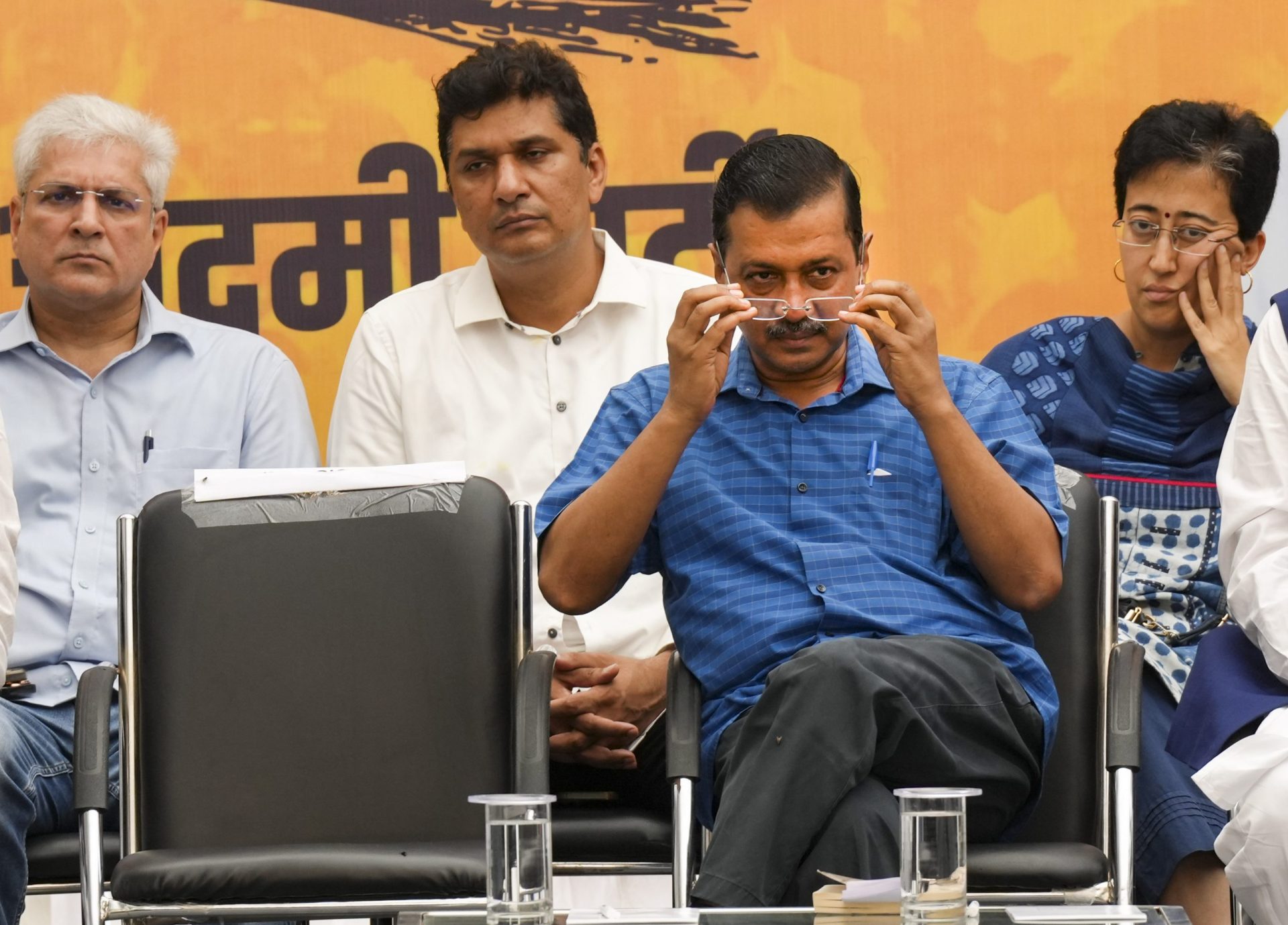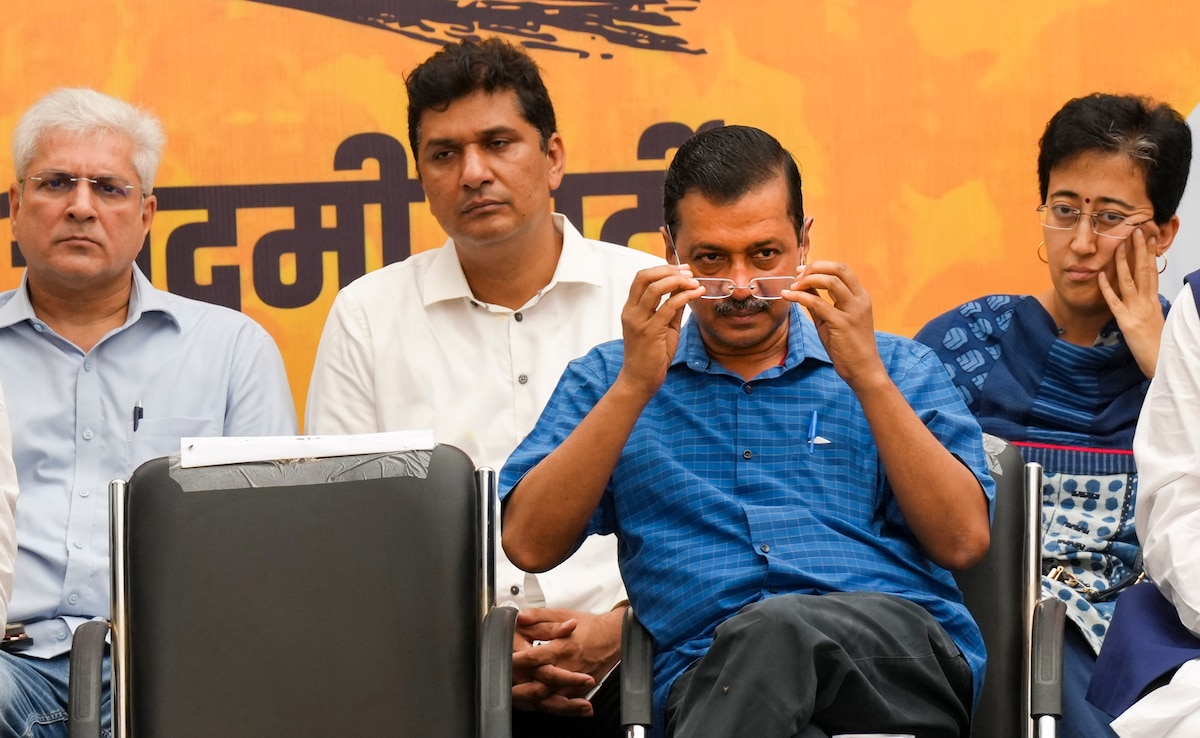
Arvind Kejriwal rose to power by promising clean governance and transparency, vowing to break free from the entrenched corruption that has long plagued Indian politics. However, as his tenure progresses, it becomes evident that his political approach is merely a façade crafted to exploit public sentiment and create illusions of reform while advancing a perilous form of populism characterised by divisive strategies, superficial initiatives, and a disregard for legal and institutional authority. His policies reflect political opportunism and a relentless thirst for power, jeopardising not only the future of Delhi but also the core of Indian democracy.
Kejriwal's political strategy, which initially seemed to advocate for the Aam Aadmi (common citizen), has increasingly evolved into one marked by division and animosity. His rhetoric consistently depicts the AAP government as a victim of a vast conspiracy orchestrated by the central government, presenting himself as a martyr fighting against injustice. This victim complex is a calculated strategy to divert attention from his administration's shortcomings and incompetence.
Kejriwal's electoral commitments have significantly faltered, particularly in education and healthcare. His administration claims to have transformed public education by enhancing schools and constructing premier infrastructure. However, data analysis reveals that, while some superficial changes have been made, the quality of education—especially learning outcomes—has not improved significantly.
Delhi's Education Infrastructure
Educators face challenges such as insufficient training, overcrowded classrooms, and inadequate resources. Similarly, the much-publicised "Mohalla Clinics" initiative, aimed at providing accessible healthcare at the community level, has not delivered the promised transformative solutions. Many clinics remain non-operational or understaffed, offering only basic services that fail to meet the needs of a rapidly urbanising Delhi. Despite lofty promises from the AAP government to enhance healthcare infrastructure, no new government hospitals have opened in Delhi during Kejriwal's tenure, and existing facilities remain overstretched and under-resourced. Had the government prioritised building new hospitals and expanding existing ones, Delhi's healthcare system could have been better equipped to handle crises.
One of Kejriwal's flagship schemes was providing free water to every household in Delhi. While this appeared to be a pro-people measure aimed at easing the financial burden on lower-income groups, the economic ramifications for the Delhi Jal Board (DJB) have been disastrous. Water is a precious and limited resource, and offering it for free in a city facing severe scarcity only exacerbates the problem. By promising free water up to 80,000 litres per household per month, the Delhi government overlooked the operational costs necessary to maintain water infrastructure and ensure equitable distribution.
Reports indicate that the DJB faces monthly losses exceeding ₹100 crores due to inefficiencies and revenue collection issues. An estimated 40% to 50% of the DJB's potential revenue is lost because of operational inefficiencies and subsidies. Consequently, the DJB struggles to recover costs, leading to mounting debts and inefficiencies in water management. In the long run, these financial losses from the free water scheme are likely to result in increased water tariffs, further burdening the very citizens this policy aimed to help.
Another critical claim of the AAP government has been the improvement in school results for Class 10 and 12 students in Delhi's government schools. However, a closer examination reveals troubling practices, such as manipulating results by deliberately failing many students in Classes 9 and 11 to inflate pass percentages for Classes 10 and 12. This tactic prevents weaker students from reaching board exams. For instance, 97% of students from the 2014-15 seventh grade were promoted to eighth grade in 2015-16. However, when promoted to tenth grade in 2017-18, their pass percentage plummeted to 55%. Nearly 50% of students failed in ninth grade, and about 33% failed in eleventh grade.
Alarmingly, between 2014 and 2021, 83% of Class IX and 84% of Class XI students who failed their exams disappeared from the education system without any records indicating whether they continued their studies or dropped out—over 628,000 Class IX and 190,000 Class XI students left the system during this dropout crisis, underscoring systemic deficiencies.
Research from leading institutes and RTI inquiries into the educational system reveals systemic challenges, including a 14% drop in per-student budgets for state schools from 2019-2023 and a 21% decline for MCD schools from 2019-2022. As of 2021, 82% of principal positions in Delhi government schools were vacant, exacerbating the problem since strong leadership is crucial for improving educational outcomes.
While the Delhi government spent ₹250 crores on 52 model schools, it largely ignored the majority of schools, which are riddled with corruption. By neglecting thousands of schools, the government touts a few as success stories. This approach artificially inflates pass percentages for critical board exams, creating a misleading impression of an improved education system.
Persistent Traffic
Infrastructure development, particularly in transportation, is crucial for the growth and efficient functioning of any urban area. However, under Kejriwal's governance, Delhi has seen little progress in this regard. No new flyovers or underpasses have been constructed during his tenure, leaving the city to grapple with persistent traffic congestion, pollution, and inadequate road infrastructure. The absence of new infrastructure is particularly concerning given Delhi's growing population and the increasing number of vehicles on the roads. Traffic congestion has become a daily ordeal for residents, contributing to higher air pollution levels and lost productivity.
Furthermore, the government's failure to prioritise infrastructure development has a ripple effect on other aspects of urban life. Poor road infrastructure and the lack of new transportation solutions hinder businesses from operating efficiently, slowing economic growth in the city. The absence of new flyovers and underpasses also affects emergency services, as ambulances and fire engines often struggle to navigate through traffic-clogged streets, putting lives at risk.
An overt illustration of Kejriwal's manipulative and divisive politics is his handling of communal strife in Delhi. The 2020 Delhi riots exemplify the AAP government's failure to prevent violence through inaction and political opportunism. Kejriwal remained notably silent during the initial days of the riots, failing to promptly restore order. His government's inability to collaborate with law enforcement and central authorities, combined with incendiary remarks prior to the riots, suggested that AAP was willing to exploit communal divisions for political gains. His purported neutrality during violence amounted to complicity, as the city burned and innocent lives were lost. Simultaneously, he fostered an environment of suspicion and distrust.
Another significant governance failure under Kejriwal was his management of the COVID-19 pandemic, particularly during the second wave, when Delhi's healthcare infrastructure crumbled under pressure. Although Kejriwal quickly blamed vaccine shortages and oxygen supply issues on the central government, his administration was woefully unprepared. Despite warnings about a potential second wave, the AAP government failed to increase hospital capacity, secure sufficient medical supplies, or establish a resilient public health infrastructure. During the peak of the crisis, hospitals were overwhelmed, forcing citizens to rely on their own desperate searches for oxygen, hospital beds, and essential medications. The Kejriwal government's repeated assurances of preparedness, followed by its inability to deliver, exacerbated the crisis and resulted in unnecessary fatalities.
Kejriwal's political rhetoric has become increasingly polarised and religious, aimed at gaining electoral support. The AAP leadership has made little effort to address the rise of radical factions within its support base and, in some cases, has appeased communal sentiments. The AAP's selective outrage regarding national issues exemplifies Kejriwal's political opportunism. His strategy appears to involve appeasing one segment of society while demonising another, creating an environment that deepens societal divisions for electoral advantage.
Despite his continual condemnation of other political parties for corruption and mismanagement, AAP has failed to uphold its promised integrity. Once a leader of an anti-corruption movement, Kejriwal now aligns himself with disreputable figures and questionable alliances. The internal corruption and lack of transparency in his administration clearly indicate a betrayal of the principles that initially propelled him to power. The AAP's financial dealings, ambiguous party funding, and avoidance of critical accountability measures show that it is no different from the political organisations it once denounced.
One of the most alarming aspects of Kejriwal's politics is his overt contempt for the judiciary and the rule of law. His defiance of judicial mandates, particularly regarding pollution control, housing, and infrastructure development, signals a dangerous trend of eroding institutional authority. The AAP consistently disregards legal obligations in favour of populist choices that cater to immediate political gains. Kejriwal's disdain for the rule of law is evident in his handling of critical issues, such as severe air pollution in Delhi, which has reached catastrophic levels under his leadership. Instead of adhering to court-mandated guidelines, Kejriwal has chosen to politicise the issue, blaming neighbouring states and the central government while taking minimal action within his jurisdiction.
Kejriwal's hubris and contempt for legal institutions are also reflected in his public confrontations with the bureaucracy. His administration has fostered a culture of fear and intimidation, discouraging civil servants from performing their duties without encountering political pressure or threats. This atmosphere of bullying and lawlessness undermines democratic governance, leading to decisions driven by political expediency rather than the rule of law or public welfare.
The AAP's widely advertised "freebie" culture is, in reality, a financial catastrophe. The subsidies Kejriwal promotes as beneficial for the populace are depleting state resources and diverting funds that could be used for essential infrastructure, education, and healthcare. These populist policies lack economic justification, and the escalating debt imposes a financial burden that future Delhi residents will inherit.
In his conflict with the central government, Kejriwal's emphasis on victimhood has hindered Delhi's progress. His refusal to collaborate with the central government on vital infrastructure projects has stalled development. Kejriwal's politics and unwillingness to engage with government agencies have adversely affected Delhi's public transport, road infrastructure, and housing expansion. He appears more focused on crafting a political narrative that portrays him as a victim of an overreaching national government than on improving Delhi, even at the expense of its progress.
While the Kejriwal government garnered attention with promises of free or subsidised electricity, the reality for many Delhi residents has been quite different. A glaring contradiction in the Aam Aadmi Party (AAP)'s governance has been the increase in fixed charges on electricity bills. Fixed charges, which households must pay regardless of their actual electricity consumption, have risen sharply under Kejriwal's rule. This increase disproportionately affects lower- and middle-income families, who, despite benefiting from subsidised rates on electricity consumption, end up paying significantly more in fixed charges. The billing structure under Kejriwal's government has become opaque, leaving citizens confused about the actual breakdown of their bills. The hidden increases in fixed charges have effectively negated the benefits of subsidized electricity, raising the overall cost of electricity for many consumers.
Delhi risks becoming a city where fleeting populism overshadows substantial growth, and hatred replaces hope in governance. Therefore, Arvind Kejriwal's political efforts, initially hailed as a fresh start for Delhi, have proven to be shallow. His empty promises, driven by hostility and political expediency, have failed to benefit the people of Delhi. The citizens of Delhi deserve better administration that fosters progress rather than antagonism.
(Views expressed are personal. Mr. Rajiv Tuli is an independent columnist and commentator, and Dr. Barthwal teaches Political Science at Sri Aurobindo College, Delhi University)
Disclaimer: These are the personal opinions of the authors

